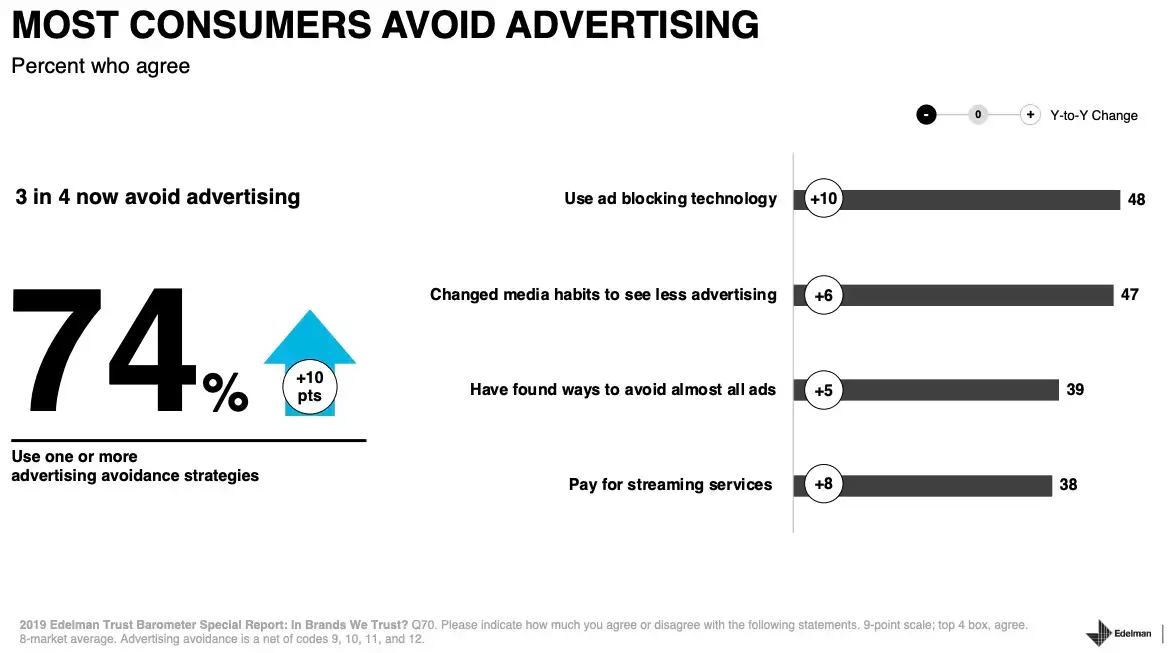What do most successful big brands have in common, no matter what they sell or market? The answer is captivating brand stories that take you beyond the product and show you the value of buying them.
Whether you are a Nike fan, an iPhone user, or a Lego enthusiast, you have seen how these brands help people like you achieve their dreams, think bigger, and believe in themselves.
It’s the power of storytelling in digital marketing at play.
Stories can create lasting connections between people and brands. If you still haven’t incorporated storytelling into your content marketing strategy, you are missing significant opportunities to attract more attention to your business.
Still, some entrepreneurs and digital marketers need help to develop SEO storytelling ideas to boost online visibility.
In this article, we will explore the advantages of storytelling to help you reach your goals.
Skip to: 6 Effective Storytelling Content Strategy Ideas
Storytelling in Digital Marketing: Impressive Stats

You must have seen numerous sellers using storytelling to persuade consumers to buy their products, but is there any evidence that this approach works?
Well, the numbers are pretty convincing:
- Most consumers (92%) want ads to feel like a story.
- Storytelling increases conversion rates by up to 30%.
- Storytelling as a part of your digital marketing tactics can bump up the value of your products by up to 2,706%!
- Storytelling can be a powerful way to trigger purchase intent. 55% of people are likelier to buy from a brand if their views resonate with the story.
- Even if you use an article distribution agency like Adsy service, you can still double your growth rate and ROI using storytelling. For example, Goodwill Arizona saw a 400% growth rate with its powerful brand storytelling strategy.
- 62% of B2B marketers acknowledge the effectiveness of storytelling in digital marketing.
Main Challenges of SEO Storytelling
Despite its benefits, storytelling is not all sunshine and rainbows. Just like a well-told story can increase trust and boost engagement, the wrong one can harm the brand.
For many marketers, the main challenge of SEO storytelling is creating a piece that captures the brand’s values.
A common mistake is focusing on products or services rather than explaining how they add value to consumers.
Besides, not all stories appeal to the audience’s emotions. How can you avoid these pitfalls?
6 Effective Storytelling Content Strategy Ideas
- Understanding what triggers an emotional response
- Use keywords to guide you
- Highlight your social impacts
- Be authentic and inclusive
- Add visuals to extend the effect
- Leverage social media
Crafting an impressive content strategy can be challenging, even for experienced marketers.

1. Understand what triggers an emotional response
Storytelling content strategy will hit its mark if you make people connect emotionally with your narrative.
You might think it is about being as shocking and sensational as possible, but it isn’t quite like that.
The audience must be able to relate to your story, so create characters with the pains, fears, interests, and needs of ordinary people.
You have reached the goal of improving someone’s life by using your service or product.
2. Use keywords to guide you
Keywords are at the core of any successful content strategy. So, discover what your audience would like to see and how to engage them.
Use keywords to find ideas for your stories. Select the ones that you can target at your level. If you are a beginner, high(er) volume and lower keyword difficulty (KD) is your best bet.
Remember that your narrative can make an impact only if your audience gets to see it. So, learn to use keywords strategically, ensuring that your content doesn’t get buried in the internet's chaos.
Besides, you want your stories to go viral, right?
If you need help digging up the relevant keywords, many AI-powered tools help address the issue and get started immediately.
3. Highlight your social impacts
74% of consumers avoid ads because people lack trust in brands. More than half of them say they would like to see businesses involved in social initiatives driven by a purpose, not just higher profits.

So, find a way to weave your products' social impacts or benefits into your storytelling content strategy.
Does your company reduce plastic waste or drive other sustainable environmental impacts? Talk about it more.
Still, avoid embellishing the story with details, as you risk backfiring and damaging your brand. Opt for full transparency while being concise as well.
4. Be authentic and inclusive
Remember that study in the previous section? Unsurprisingly, 56% of the respondents also feel that many brands use social issues only as a marketing ploy.
So, how do you navigate that? The only answer is being authentic. Your stories should be consistent with your brand’s values and image.
You’ll build trust, lifetime loyalty, and customer advocacy. While your narrative doesn’t necessarily have to be a true life story (not that there’s any harm in these), they do have to look and feel authentic.
But your job does not end there.
Do you have any customer video testimonials that can back up your claims?
Use them to boost trust. Stories are a universal human experience, so try to be as inclusive as possible; people of all ages, races, and economic backgrounds should be able to relate to your stories.
5. Add visuals to extend the effect
Storytelling works so well because it taps into the emotional parts of our brain and creates vivid mental imagery that we can relate to.

Using engaging visuals that make your narratives more straightforward, you help your audience connect with the brand and understand it.
Besides, fewer people are likely to exit your web pages if what they see is visually appealing.
So, use quality visuals and a good hook that makes the visitor want to uncover the rest of the story.
6. Leverage social media
Social media is as significant in digital marketing as the invention of the trains is to industrialization.
You want to ensure that all your hard work pays off and the story gets all the attention it deserves.
Often, marketers use proven tactics like link-building and paid ads to promote their blogs. These work very well, but quality link building is expensive.
So, it’s better to use different distribution channels.
This way, you can boost engagement and shareability by posting your stories on social media platforms like TikTok, Instagram, Facebook, YouTube, etc.
Conclusion
SEO storytelling is not just a digital marketing strategy but also a way to connect with your community better and stand out in the digital world.
It’s about being seen and heard in the online crowd, and most importantly, it's about growing your business in a way that feels true to you.
Your story is unique. It's about your journey, your products, and the special touch you bring to your customers.
This authenticity is what people will connect with. You don't need to be a big brand or have a huge budget.
Simple, genuine stories about your business, how it started, or how you help your customers can make a big impact.

